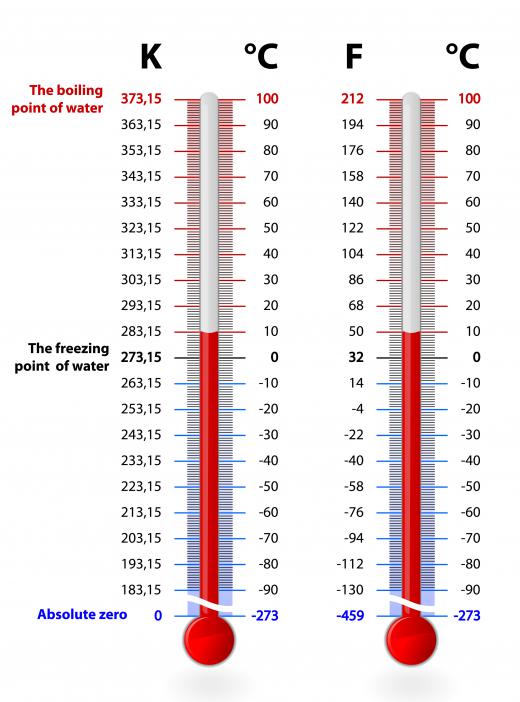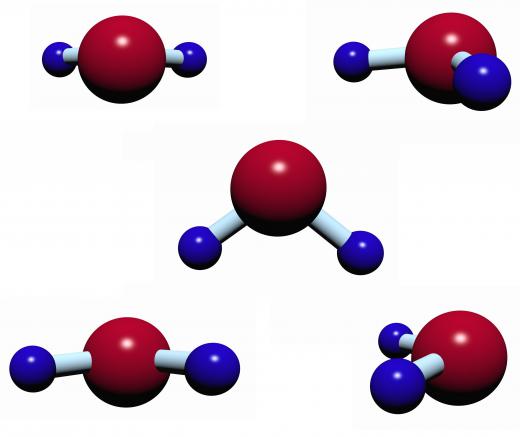What Is an Absolute Scale?
Temperature is a measurement of energy, with higher temperatures indicating more movement of molecules, or kinetic energy. Common scales include the Fahrenheit and Celsius scales, with each having a known number of degrees or increments between the freezing and boiling points of water. An absolute scale does not use the same reference point, but is based on zero as a theoretical value where molecules have no kinetic energy. Some scientists believe that absolute zero can never be reached, because as a calculated value there is no way to measure it.
British physicist William Thomson, or Lord Kelvin, created an absolute scale in the 1840s. On his Celsius scale, water freezes at a temperature of 0°C and boils at 100°C. Kelvin calculated that the absolute low temperature limit is approximately -273°C, calling this the zero point of his scale. His scale used the same temperature increments as the Celsius scale, and was named the Kelvin scale after him.

William Rankine proposed an absolute scale in the 1850s based on the Fahrenheit rather than Celsius system. On this scale, water freezes at a temperature of 32°F and boils at 212°F. He based his scale on the same theoretical zero point as Kelvin, which is approximately -459°F, and this is known as the Rankine scale.
An absolute scale temperature defines the movement of molecules, rather than a measurement of heat energy. As the energy in a gas increases or decreases, the pressure will change for gases kept in a sealed container. Determining the property of gases involves measurements of temperatures and pressures in comparison to known standard values, with absolute zero as a reference. These properties can be important for analyzing gas mixtures, or properties of gases or other materials at cryogenic, or extremely low, temperatures.

Another property of materials is their triple point. This is a temperature and pressure where the material can exist in all three phases; solid, gas and liquid. An example of triple point is water, which has a triple point at 273°K, which is the same as its normal freezing point of 32°F or 0°C. This explains how frost can form on cold nights, because the water molecules under certain conditions can move directly from a gas state to a solid, or vice-versa.
The process of passing from solid directly to gas is called sublimation. Ice cubes that slowly disappear in a freezer are subliming water directly to a vapor from solid ice. Another common chemical that sublimes is dry ice or frozen carbon dioxide, which changes directly from a solid to gas without melting. This property can be useful for low temperature industrial processes or refrigeration, where liquids could create handling problems.
Many substances have very low triple point temperatures, which makes an absolute scale important for their measurement. Separation of gases for industrial purposes requires very low temperatures, often measured in absolute terms. Gases such as helium have a triple point very close to absolute zero, which makes it useful as a reference for other gases.
AS FEATURED ON:
AS FEATURED ON:












Discuss this Article
Post your comments